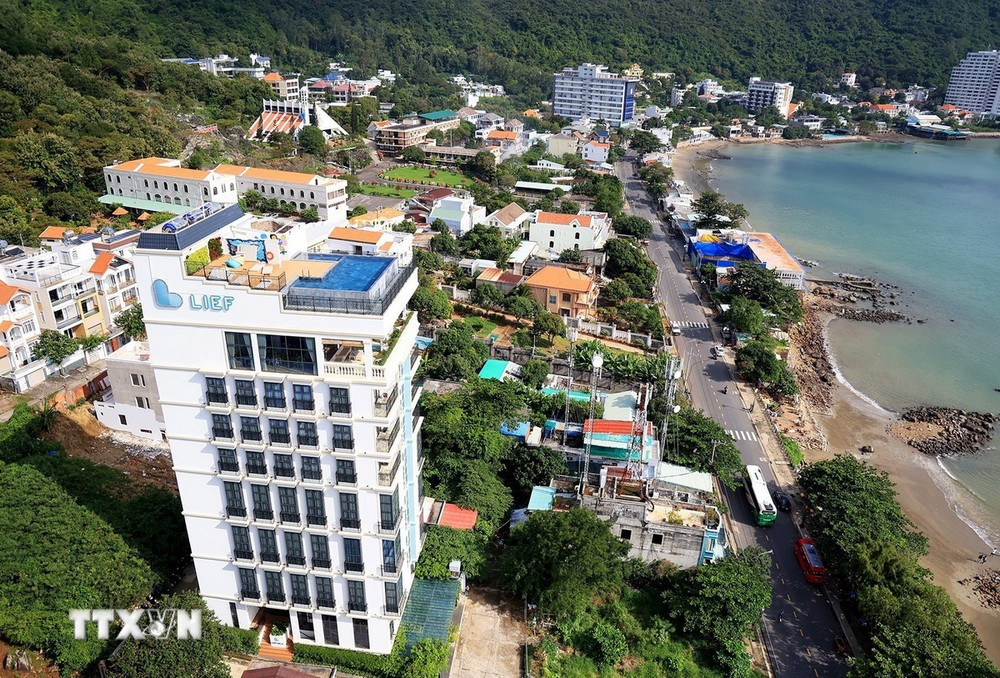Although foreign investors appreciate the potential of the resort real estate market in Vietnam, they are still hesitant due to barriers, especially regulations and procedures for project development.

Project development quality, duplicate models, and lack of sustainable orientation have led to the ineffective operation of the condotel segment (hotel apartments) in recent times.
Although many foreign investors still appreciate the potential of the resort real estate market in Vietnam, they are still hesitant due to barriers, especially regulations and procedures related to project development.
Regarding this comment, Mr. Mauro Gasparotti, Director of Savills Hotels Asia Pacific, commented that in reality, investors often tend to look for assets that are already in operation, especially quality hotel and resort projects, in the 5-star segment in central urban areas such as Ho Chi Minh City and Hanoi. However, these assets are often quite scarce in the market, as well as less "open" to transfer needs.
Meanwhile, condotels are causing concern for investors and affecting the general market as this is the most difficult segment in resort real estate products with liquidity almost "frozen" in some areas. Therefore, the once "hot" product is now "unsold."
Savills experts say that not only Vietnam but also some other markets in Southeast Asia have witnessed a period of hot development of condotel products. For example, in Bali (Indonesia) in 2008, this market has now passed the "new project boom" phase and is instead developing slowly but with quality. In general, each market will go through a certain cycle. However, compared to Thailand and Indonesia, the Vietnamese market faces more challenges.
In the recent period, Vietnam has recorded a large number of condotels being launched for sale, especially in the period of 2016-2019 with an estimated average of 12,000 products launched for sale each year. In addition to the large supply, many products launched for sale during this period raced to commit to profits with attractive time and rates without careful consideration of overall operating results.
A typical example in Vietnam is the massive development of condotel products in Phu Quoc in recent years. Phu Quoc has many advantages to become an international destination. However, most of the supply in the market currently only focuses on providing rooms without paying attention to the customer experience. The market needs to diversify its accommodation products, such as hotel projects with design highlights, true luxury resorts...
According to Mr. Mauro Gasparotti, choosing the right model and product that suits market conditions and customer needs is an important factor to ensure the successful development of a project. For example, in the Phu Quoc market, investors when planning a project need to carefully consider if choosing the shophouse model because there are currently many sources of supply of this product and most of them have not been put into commercial exploitation.
"If a product is not carefully planned and developed, it cannot operate effectively no matter what market it is developed in. Not only in Vietnam have we witnessed problematic condotel products, some projects in Bali and HuaHin also faced similar 'disasters' simply because they were not carefully planned and developed," Mr. Mauro Gasparotti cited.
However, experts also noted that in Vietnam, there have been successful condotel products such as Hyatt Regency Da Nang and Melia Ho Tram projects. The common point of these products is that they are all well planned, built and managed, bringing value to investors and owners.
In addition, experts also recommend that improving infrastructure is an important premise to promote domestic tourism. The clearest example is Phan Thiet tourism, since the completion and operation of the expressway project has boosted the demand of domestic tourists, especially from the Ho Chi Minh City market when travel time has been shortened to only 2-3 hours.
In addition, to increase the attractiveness of resort real estate and attract investors, in addition to infrastructure, the market also needs to diversify tourism products, paying more attention to the experience and amenities of tourists.
TB (according to VNA)